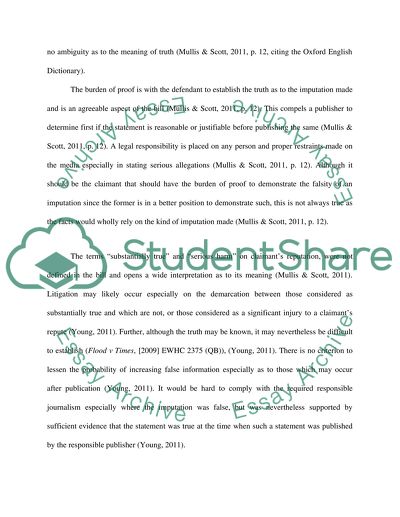Cite this document
(“Reform on The English Libel Law Essay Example | Topics and Well Written Essays - 1500 words”, n.d.)
Retrieved from https://studentshare.org/law/1472391-the-defamation-bill
Retrieved from https://studentshare.org/law/1472391-the-defamation-bill
(Reform on The English Libel Law Essay Example | Topics and Well Written Essays - 1500 Words)
https://studentshare.org/law/1472391-the-defamation-bill.
https://studentshare.org/law/1472391-the-defamation-bill.
“Reform on The English Libel Law Essay Example | Topics and Well Written Essays - 1500 Words”, n.d. https://studentshare.org/law/1472391-the-defamation-bill.


